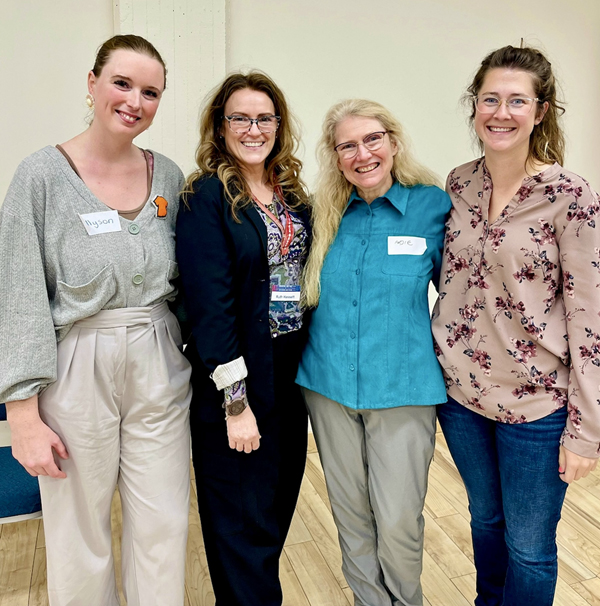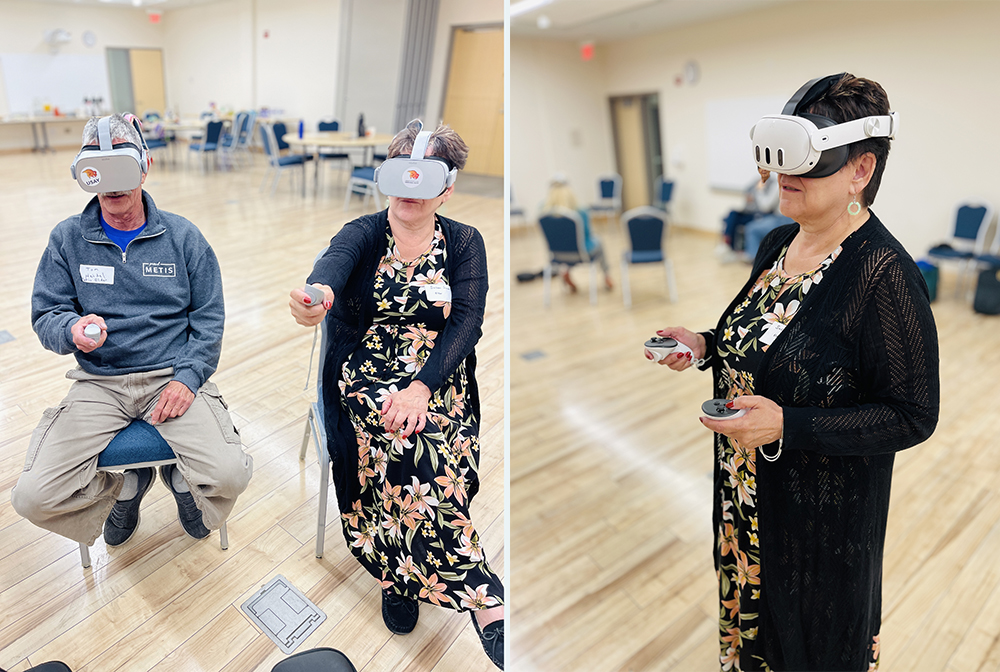Revitalizing Indigenous Languages Through Virtual Reality: A Groundbreaking Workshop
7 October 2024
Allyson Lynch (previously Brinston), a graduate student at the University of Alberta’s Department of Anthropology, recently hosted a pivotal workshop as part of her Master's research, focused on revitalizing Indigenous languages using Virtual Reality (VR) technology. The workshop aligns with the United Nations’ Decade of Indigenous Languages and Canada’s Truth and Reconciliation Commission Calls to Action, highlighting the urgency of preserving and revitalizing Indigenous languages. This project explored innovative approaches to language education, particularly for Indigenous youth in urban settings. Moreover, it resonates with the University of Alberta's Indigenous Strategic Plan, which emphasizes the importance of incorporating Indigenous knowledge, languages, and perspectives into the university's educational and research frameworks. This workshop is a step forward in addressing the strategic plan’s goals of fostering Indigenous-focused initiatives and ensuring that the university's education, research, and community engagement are inclusive and reflective of Indigenous values and worldviews.

Pictured here are MA student Allyson Lynch, Otipemisiwak Métis Government senior language coordinator Ruth Hassett, Lynch’s graduate supervisor Dr. Andie Palmer and PhD student Rebecca Bourgeois
The workshop successfully brought together 7 Indigenous youth, aged 10-17, representing diverse languages such as Cree, Mi'kmaq, Dene Tha’, Michif, and Stoney Nakoda. Despite the VR content being in Blackfoot, participants expressed a deep sense of connection to the cultural learning experience. Lynch emphasized, “This workshop was about empowering youth to have a voice in shaping how Indigenous languages are taught in the future. Their feedback will play a crucial role in ensuring these educational tools are engaging and culturally relevant.”
Feedback gathered from the workshop revealed promising results. Many youth highlighted how the immersive experience of VR made them feel like they were “living the language,” with several expressing that this method made learning more intuitive and enjoyable. Participants also noted the importance of blending traditional teachings with modern technology to help preserve their cultural heritage.

The involvement of parents as active participants was crucial in shaping their children's educational experiences. Their insights provided valuable context for understanding how their children engaged with learning, especially through VR's unique format. Parents contributed perspectives on how this technology can enhance language education, ensuring the tools developed are culturally relevant and aligned with community and family values.
Two Elders honoured the workshop by their presence. Susan Sinclair, a Cree and Métis Elder and Knowledge Holder fluent in both Cree and Michif, provided deep cultural wisdom that enriched the experience. Elder Tom Heidel, a dedicated Michif language learner from the Métis Nation of Saskatchewan, inspired youth by demonstrating that language learning is a lifelong journey. Their contributions were integral to the workshop's success.

This workshop was made possible through the collaboration of key partners, including the Kule Institute for Advanced Study (KIAS), the UAlberta Office of the Dean of Students and Department of Anthropology, the Urban Society of Aboriginal Youth (USAY), the Otipemisiwak Métis Government, Supporting Indigenous Languages Revitalization (SILR), and the Canadian Indigenous Languages and Literacy Development Institute (CILLDI). These partners provided vital resources and cultural guidance, further enriching the youths and their parents’ experience.
Lynch’s research offers early takeaways highlighting VR’s potential as a powerful tool for language revitalization. The project demonstrated how technology can engage youth in preserving their heritage by making language learning more interactive and immersive. With continued community and academic collaboration, this research is poised to inspire the broader use of technology in Indigenous language education, contributing to long-term revitalization efforts. The insights gathered from this workshop will inform the next phases of Lynch’s research, contributing to the development of more advanced VR tools tailored to Indigenous language education. This research continues to align with the University of Alberta’s Indigenous Strategic Plan, ensuring that future initiatives support Indigenous-focused education and cultural preservation.
Stay tuned for further developments as Lynch’s research continues to contribute to paving new ways of learning for a new generation of Indigenous language learners.